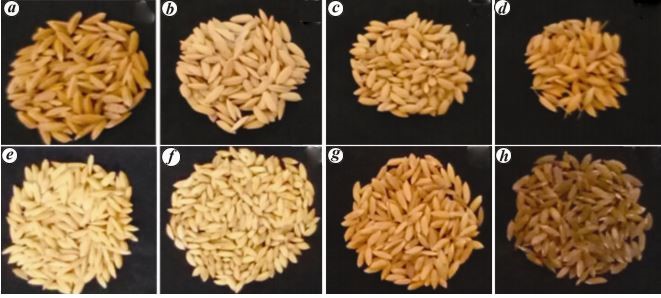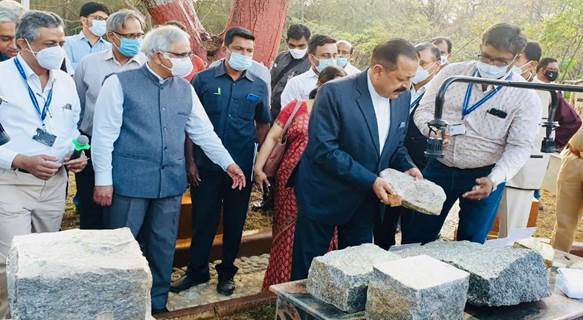
Specialty Rice Varieties of Kerala Are Storehouse of Nutrition
- News
- 8.1K
Rice is a staple food for millions of Indians. It can also be a vital source of nutrition and health-benefiting substances if some of the nutritious varieties of rice traditionally grown can be popularized and polishing is kept to a minimum, a new study of diverse rice varieties done in Kerala has concluded.
Kerala is home to a number of specialty rice varieties such as Pokkali, a saltwater-tolerant organic rice having medicinal properties and special taste; Jeerakasala and Gandhakasala (scented rice varieties); Black Njavara and Golden Njavara (medicinal rice varieties extensively used in the Ayurveda). Researchers at the Rice Research Station, Kerala Agricultural University, Kochi, compared these varieties with two widely cultivated rice varieties, Jyothi and Uma, for nutrition value and acceptability by people.

Rice varieties Jyothi, Jaya, Uma, Pokkali in first row and Jeerakasala, Gandhakasala, Golden Njavara, Black Njavara in second row.
The rice samples were compared for grain size and shape (which determines consumer preference and commercial success), carbohydrate content (which affects overall pastiness after cooking and eating), gelatinization temperature (affects cooking temperature of rice), content of protein (required for growth and development), fibre (reduces risk of bowel disorders and fights constipation), minerals (required for various body functions) and moisture (affects rice quality especially shelf life).
It was found that that Pokkali rice has all the desired qualities including nutritional values. It was rated among the best in terms of fiber and protein content, antioxidants with benefits of vitamin E, and minerals such as iron, boron, and sulfur. It had the lowest carbohydrate content (along with Gandhakasala) making it most suitable for persons with diabetes or those advised low-sugar diet.
Researchers point out that rice milling, done for polishing rice grain, involves discarding bran or brown outer layer of rice kernel which has considerable nutritional value and health benefits. Processed rice is deficient in many minerals such as potassium (maintains blood pressure), phosphorus (for strong bones and dental health), manganese (required for various chemical processes in the body) and sulfur (main constituents of proteins in our body).
“Polishing should be kept to a minimum during milling, and antioxidant-rich bran of these specialty rice varieties resulting from milling can be utilized in the preparation of healthy snacks such as biscuits, baby foods, and bread,” pointed out Dr. K S Shylaraj, who led the study, while speaking to India Science Wire. The study results have been published in journal Current Science.
Rice bran, besides having high fiber content, consists of various antioxidants with similar benefits as vitamin E. It helps lower cholesterol levels and also protects and fights infections. The rice bran oil extracted from varieties of rice considered in the study were found to be a good substitute for groundnut oil in supplying fatty acids besides being more economical.
“Growing Pokkali rice is being popularized as a solution for farmers in coastal areas who are facing a problem of high levels of salt content in soil due to rising sea levels. Pokkali rice, if grown during the monsoons, holds rainwater. This freshwater then seeps into the ground and removes some of the salt water thereby reducing the saltiness of soil,” said Dr. Shylaraj.
The research team also included Soumya G. Nadh and Shimi K. Chandran. (India Science Wire)
By Monika Kundu Srivastava
For the latest Science, Tech news and conversations, follow Research Stash on Twitter, Facebook, and subscribe to our YouTube channel


